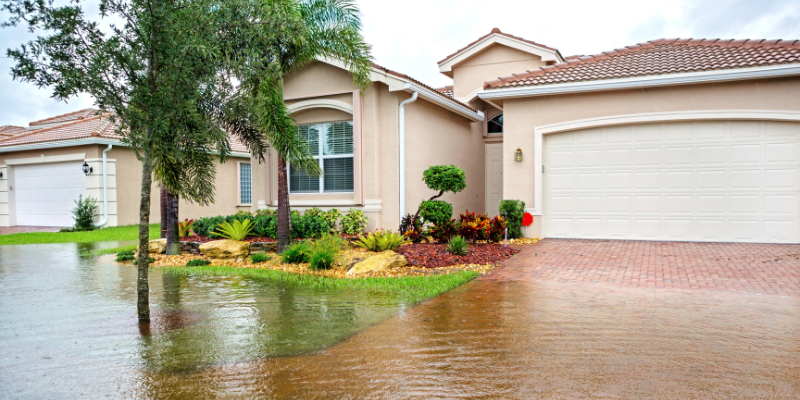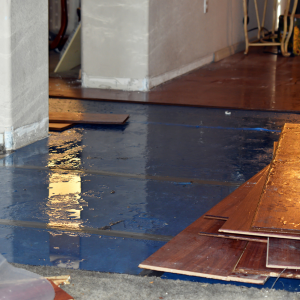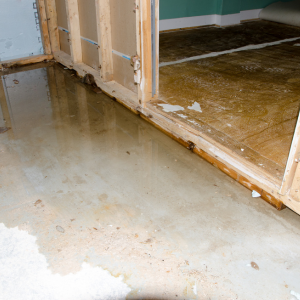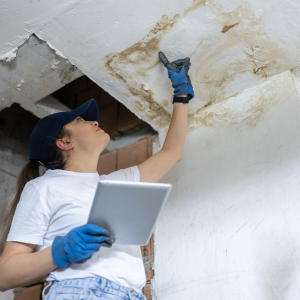
It’s not simple to sell a home that has been damaged by floods, especially in Cleveland, Ohio, where the weather can change quickly and heavy rain can affect property values. Ohio’s property rules can be challenging to understand, but if homeowners have a good plan and know the local market, they can handle the process efficiently. This detailed resource includes sellers’ tips and tricks that are relevant to Cleveland’s property market, as well as expert guidance. It helps them deal with buyers’ worries and turn problems with their house into opportunities. If you want to sell your house or are having trouble with flood damage right now, it’s crucial to know how the real estate market works in your area.
Brief Overview
You need to plan ahead, be honest, and know the restrictions in your area if you want to sell a house in Cleveland that was damaged by a flood. It’s crucial to find out how much the property is really worth, establish a list of the most important repairs, and learn about Ohio’s disclosure regulations. If you use flood insurance appropriately, it might help keep the value of your property and make it easier to sell. To build confidence with buyers, your marketing should emphasize on the wonderful things about your house and be honest about any flooding that has happened in the past. By following Ohio’s regulations for legal disclosure and keeping lines of communication open, homeowners may be able to navigate past these obstacles and get their property ready for a smoother, more profitable sale.
Key Highlights
- Being honest about flood and water damage saves things from getting legally problematic and builds trust with buyers.
- Flood damage can change how much a house is worth and how buyers feel about it.
- Even if the house has been damaged in the past, clear and effective marketing can help show off its best characteristics.
- Flood insurance is particularly vital for protecting your home’s value and attracting buyers who are hesitant.
- If you live in a location that is likely to flood, you need to think about how much repairs will cost and how much you could sell your home for.
What Flood Damage Does to Your Property
Flood damage may be very hard for Ohio residents to deal with, especially since a lot of locations have had poor weather in the last few years. In order to sell a house successfully, sellers need to know about the many types of flood damage and how they affect the construction and value of the property. If homeowners know a lot about these things, they can make sensible decisions, rectify damage fast, and honestly show the house to potential buyers.
What Causes a House to Get Flooded?

Floodwaters can cause a variety of problems when they get into a house. This is what defines a property “flood-damaged.” The damage often extends deeper than what you can see immediately, such as soggy floors or broken walls. It could also mean that the structure, the electrical system, and the contaminants are worse. To find out how terrible the flood damage is, you need to know how long the water was there, what kind of water it was (fresh, salt, or dirty), and what things were broken.
Structural damage is one of the worst things that may happen to a structure when it floods. If water sits in a house for a long time, it can weaken the foundation, break up concrete, rot the wood frame, and rust the metal reinforcing. These issues can, over time, lead to cracks, the foundation to shift, and settlement to be uneven. A structural engineer or experienced contractor needs to look at all of these problems.
Mold grows more easily in damp places, which is hazardous for your health and your property. Mold can spread quickly in wet areas, which can hurt building parts and make the air inside worse. It’s really vital to undertake appropriate remediation so that everything is entirely eradicated and doesn’t happen again. This should be done by people who know what they’re doing.
Electrical and mechanical systems are at the greatest risk. Floodwaters can damage wiring, destroy outlets, and screw up HVAC systems, which can be exceedingly dangerous and start fires. In a lot of cases, these systems have to be totally changed before people can live in the house again.
Floodwater can also have things like trash, chemicals, and sewage in it that could be bad for you. It is necessary to clean and sanitize the property very well before it can be put up for sale. People who buy will want to see documentation that the cleanup was done right, so it’s crucial to have detailed records and certificates from the people who completed the work.
Another crucial thing to think about when considering what defines a home flood-damaged is the insurance coverage. You can get your money back and keep good records for buyers if you know what your policy covers, how claims are handled, and what paperwork you need. When you sell something, being open and honest not only builds trust, but it also makes conversations go more smoothly.
Common Types of Damage That Happen After a Flood
Flooding can cause a multitude of problems, and each one impacts a different part of the house. Here are some of the most common types:
- Water Damage: When it floods, water enters floors, walls, and foundations, which makes them flex, bulge, and break down. If the wood sections decay or the metal fittings rust, the building may become less stable.
- Damage to the floor: Carpets keep moisture in, which can cause mold and mildew. Hardwood flooring can also bend or warp. Even stronger materials like tile or laminate can have weak spots in the subfloor.
- Drywall and insulation might be damaged because they soak up a lot of water. They lose their structural strength when they get wet, and to be safe and energy-efficient again, they need to be entirely replaced.
- Mold and bugs like standing water and high humidity, which can be bad for your health. If not taken care of properly, both can lower the value of a home and make it difficult to sell.
- Floodwaters can seep into electrical panels, outlets, and pipes, which can cause corrosion, short circuits, or contamination in plumbing systems.
- Damage to the outdoors and landscaping: Soil erosion, debris buildup, and waterlogging can make driveways, patios, and gardens less attractive.
Fixing this kind of damage immediately and professionally can make your home seem a lot nicer and give purchasers more confidence. Putting in sump pumps, correcting the drainage, and grading your yard to make runoff better are all things that can raise the value of your home and give potential buyers peace of mind in the long run.
How to Find Out the Value of Your Flooded Home
One of the most important steps when selling a flood-damaged house is determining how much it’s worth. Flood damage can lower a home’s market value, but understanding the full picture helps homeowners decide whether to repair, renovate, or sell the property as-is. This process involves assessing both the home’s condition and the Cleveland real estate market — including the growing presence of investor home buyers in Cleveland who often look for opportunities to purchase and restore damaged properties.
How Flood Damage Changes the Value of a House

Flood damage can make a house worth less in several ways, such as structurally, financially, and mentally. People who wish to buy a house that has flooded in the past are generally hesitant, and this idea alone can drop offers. The cost of repairs, the possibility of hidden damage, and the threat of flooding in the future all have a large effect on market value.
Flooding can damage a home’s structure, like the foundation, warped floors, and corroded wiring, which affects its value. Some buyers are still apprehensive, even after repairs, since they are worried that problems will come again. Worries about mold can also hurt your health and the value of your property, which makes it even tougher to talk.
When appraisers decide how much a property is worth, they look at these items. When evaluating regions that are susceptible to flood, experts usually think about how probable it is that the same thing will happen again, how much insurance would cost, and how long repairs will last. On the other side, a well-documented maintenance history might mitigate some of this effect by indicating that the property is safe and well-kept.
To retain their value as high as feasible, sellers should:
- Complete any repairs to the structure that are needed.
- Provide clear evidence of the restoration effort.
- Get professional checks for mold and safety.
- Use materials that won’t get wet as you rebuild.
- Be honest about the property’s past.
This proactive approach indicates that you can be trusted, helps you explain your asking price, and brings in customers who are more confident.
How to Sell Your House with Flood Insurance
Flood insurance is essential when selling a home that has experienced flood damage—especially if you want to sell your house fast in Ohio, where heavy rainfall is common. Having proper flood insurance can significantly impact your home’s value, the number of interested buyers, and even a buyer’s ability to secure financing.
How Flood Insurance Changes the Process of Selling
If you have active flood insurance, it could help you sell your home. Buyers frequently select homes that already have a transferable policy since it shows that the seller is ready and decreases their risk in the future. Having comprehensive records of past claims and repairs provides potential buyers peace of mind that damage has been handled effectively.
Some buyers may not want to buy homes in neighborhoods with a lot of crime and expensive premiums, on the other hand. Sellers should carefully explain the terms of their present policy, how many claims they have filed, and any adjustments they have made to lower premiums, including fixing drainage or boosting mechanical systems.
Flood insurance can also help sellers pay for repairs, which is highly crucial. Claim payouts help fix up the property so that it is again livable and appealing to purchasers before it goes on the market. Also, having well-documented insurance can make the home more appealing to lenders because it lowers their perceived financial risk, which makes it easier for purchasers to acquire a loan.
In the end, being responsible and accurately communicating your flood insurance information can help you acquire a property faster and develop trust with buyers.
How to Sell a House in Ohio That Needs Work
If you want to sell a house that was damaged by a flood, you need to market it well and talk to people who might want to buy it. If you know how to promote it, a home with a poor past could nevertheless get a lot of buyers.
How to Sell a House That Has Been Damaged by Flooding
Honesty and showing off your skills are the keys to successful marketing. Talk about the good things about your home, including its location, lot size, architectural style, or recent improvements. Tell the truth about the flood and the work that was done to fix it. This will reflect that the property has been thoroughly cleaned and fixed up.
Spending money on quality photography and staging can make a big difference. Pictures that are well-lit and show off clean, repaired areas and inviting spaces could help people forget about the damage and think about what the home could be. To receive the greatest attention, put the property on all the major real estate websites. You could even want to consider hosting virtual tours to reach people who reside outside of town.
Targeted marketing can also be quite effective. For example, investors and house flippers often look for homes that are for sale and might go up in value. Talk about the work that has been done to fix up the house and how it could be a smart investment to get these individuals to look at it.
Knowing what buyers are worried about and fixing it
People who buy homes that have been damaged by floods frequently worry about the same things: how stable the building is, the risk of mold, the cost of insurance, and the chance that the home will flood again in the future. Being honest and keeping records is the best way to cope with these problems.
Give a complete history of the property, including inspection records, repair bills, and certificates for work that has been done. Give buyers copies of any insurance policies or warranties that can be transferred. This will make kids feel better about being safe in the long run.
If you can, get a recent assessment or expert inspection that demonstrates the house meets local building codes. Talk about the changes you’ve made to stop floods from happening again, like adding sump pumps or changing the grading. This shows that you are a good owner.
People trust each other more when they are honest with one another. When buyers feel like they have all the information they need and see that the seller has taken good care of the property, they are more likely to move forward.
Things to think about legally when selling a house that was damaged by water
If you sell a house in Ohio that has been damaged by a flood, you have to follow certain guidelines, especially when it comes to what you tell the buyer. Being honest is not only a good idea, it’s also the law that protects both parties in a deal.
Why You Should Talk About Water Damage

Ohio law specifies that sellers have to fill out a Residential Property Disclosure Form that identifies all known concerns, even if there has been flooding or water damage in the past. This paper needs to state what kind of damage there was, what repairs were completed, and what problems are still going on.
If you don’t tell people about your history of flooding, you could be sued or face other legal action. On the other hand, being honest might assist you with clients because they are more likely to trust providers who are open about their business.
Keep careful records of your disclosures, like insurance claims, inspection reports, and contractor bills. This not only makes sure that the requirements are fulfilled, but it also makes buyers and their lenders feel better.
Full disclosure also makes it easier to acquire a loan because lenders are more willing to grant loans on properties with clear, documented histories. In summary, being honest about things is both a legal and strategic advantage that will keep the deal from producing problems in the future.
If you want to sell a house in Cleveland, OH that was damaged by a flood, you need to be ready, honest, and have a plan on how to promote it. You may get over the obstacles and make a fair sale by planning repairs properly, making sure your paperwork is correct, and putting your home in a good spot. Even in a competitive market, highlighting the greatest features of your home and the community in Cleveland will help you locate buyers who are ready to buy. You can turn this problem into an opportunity if you do the right things. Cleveland House Buyers buys houses for cash in any condition — including flood-damaged homes. Contact us today to get a fair cash offer and sell your Cleveland property quickly and hassle-free.
FAQs
What are the most crucial things to do when you want to sell a house in Cleveland, OH that was damaged by a flood?
You need to do a lot of planning before you can sell a house that has been damaged by a flood. You need to know how much the house is worth, what repairs are most critical, what the requirements are for real estate in your area, how to use flood insurance, and how to obey Ohio’s disclosure laws. These measures help calm the nerves of potential buyers and handle the issues in a smart way.
How can flood damage affect the price of a house on the market?
Flood damage can make a home worth a lot less on the market since it can damage the structure, cause mold to grow, and cause problems with the electrical system. This can make buyers less interested and lower their offers. Being honest about repairs and how things are right now will help lessen some of this.
What do you need to do in Ohio to lawfully sell a house that was damaged by a flood?
You have to follow Ohio’s disclosure rules when you sell a house that was damaged by a flood. It’s necessary to fill out a Residential Property Disclosure Form that includes any concerns you know of and the history of repairs. This honesty keeps legal issues from coming up and makes buyers trust you.
How could having flood insurance change the sale of a house that has been damaged by flooding?
Flood insurance is particularly significant since it pays for repairs and can change the value of a home. Having an insurance in place could make buyers feel better about possible problems in the future, which makes it simpler to sell the house. When you know how insurance works, transactions move more smoothly.
How can you sell a home in Cleveland that has been damaged by flooding?
Some smart strategies to sell a house are to talk about what makes it exceptional, use digital platforms to spread the word, be honest about any problems and repairs, and focus on niche markets like investors who want to buy and fix up properties.
Helpful Cleveland Blog Articles
- Refinancing Your Cleveland, OH, Home After Divorce
- Inheriting A Mortgaged House In Cleveland, OH
- Average Cost To Sell A House in Cleveland, OH
- How To Sell A House with Flood Damage in Cleveland, OH
- How To Sell An Investment Property in Cleveland, OH
- Capital Gains Tax After Selling A House in Cleveland, OH
- Selling A Home That Needs Repairs in Cleveland, OH
- Selling Your House To A Relocation Company in Cleveland, OH
- Selling a House with Solar Panels in Cleveland, OH
- Taxes When Selling an Inherited Home in Cleveland, OH

